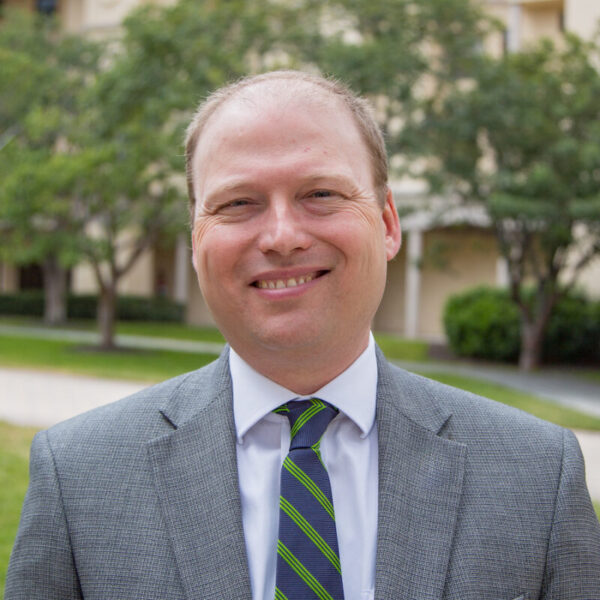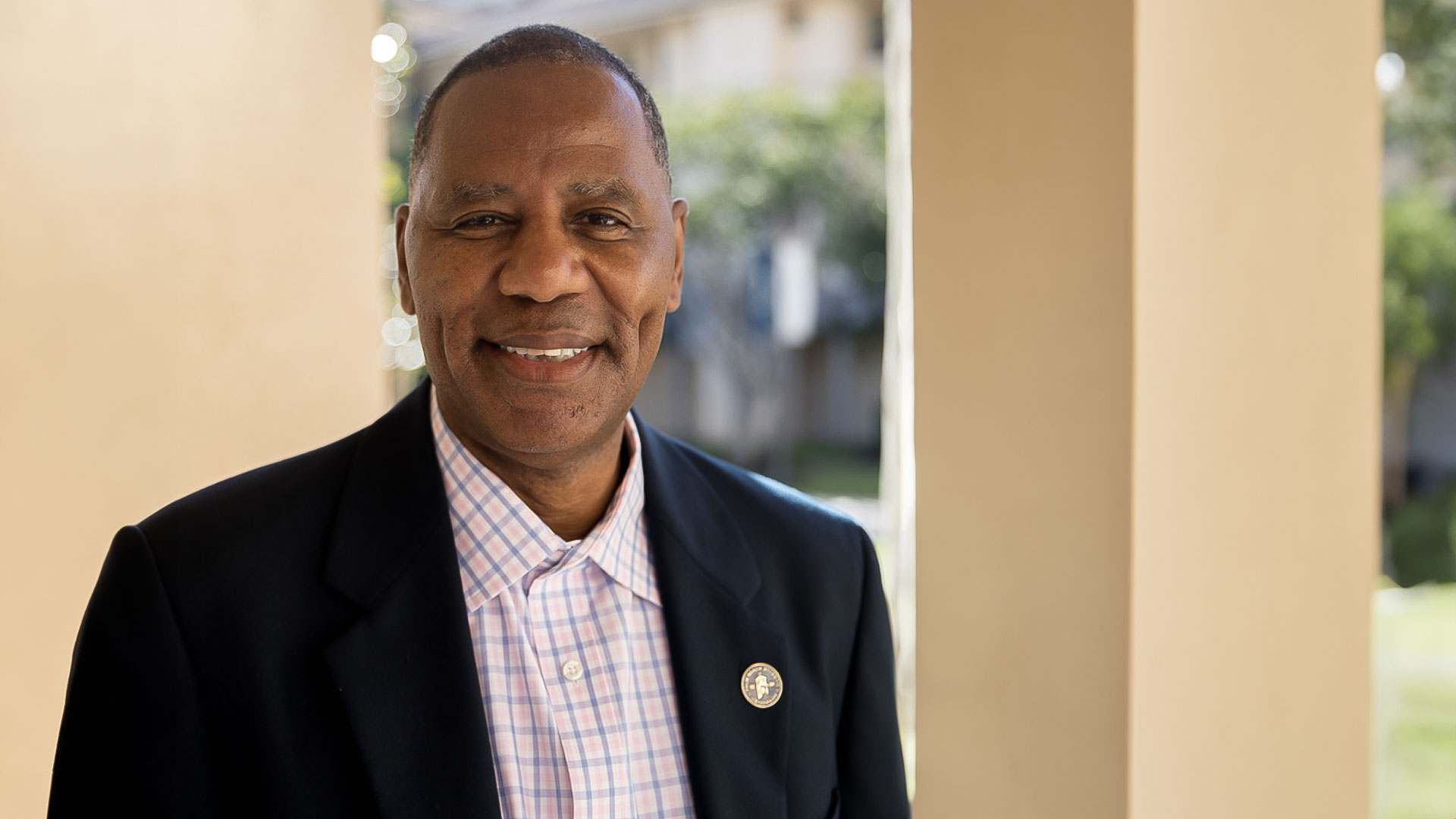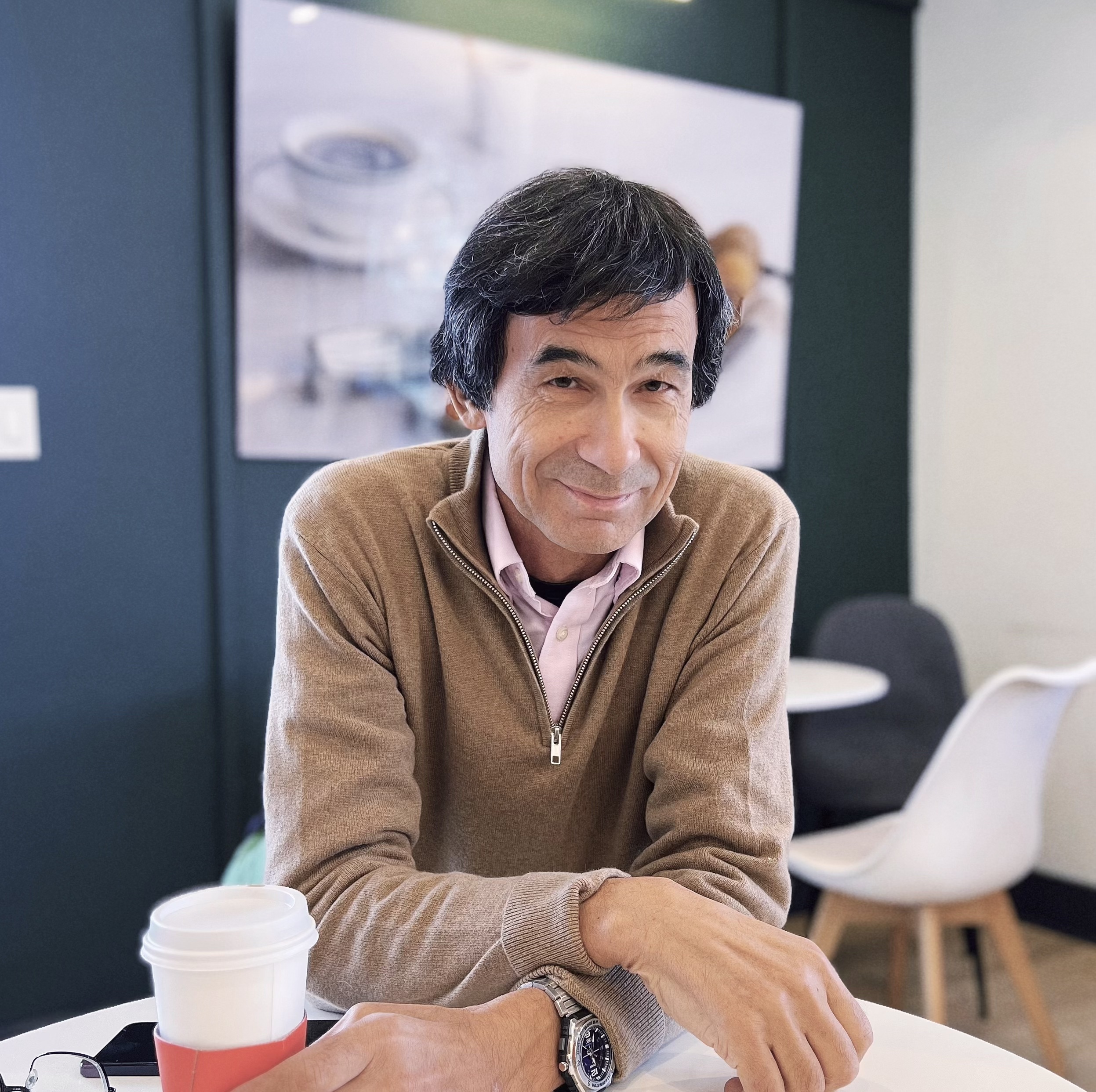Endeavoring to spark academically rigorous and thoughtful discussion, the Palm Beach Atlantic School of Ministry hosted its inaugural Faith & Culture Forum, comprising four lectures and two panel discussions focused on Christian perspectives on war and peace.
In the daylong event, four visiting scholars addressed global issues with moral and theological implications. The forum was held Thursday, Feb. 7, with sessions in the Warren Library Rotunda, the DeSantis Family Chapel, and the Weyenberg Center.
Dr. Paul Copan introduces Dr. Miles Werntz, Dr. Nigel Biggar, Dr. Janna Hunter-Bowman and Dr. J. Daryl Charles.“We’ve been wondering how to engage our students and the community in theological discussion that is interdisciplinary, that is outside the walls of the church,” said Dr. Jonathan Grenz, dean of the School of Ministry. One of the forum’s primary goals, said organizer Dr. Paul Copan, was to show there are “different ways of carving out one’s position on the use of force.”
Each of the lectures unpacked a different aspect of war and peace-building from a scholarly perspective.
Dr. Myles Werntz opened the forum with a lecture on immigration. He is an associate professor of Christian ethics and practical theology at Logsdon Seminary, at Hardin-Simmons University. His talk was followed by an address on humanitarian intervention and military support from Dr. J. Daryl Charles, 2018-19 Acton Institute Affiliated Scholar in Theology & Ethics and a contributing editor of Providence: A Journal of Christianity and American Foreign Policy.
Dr. Janna L. Hunter-Bowman, the director and assistant professor of Peace Studies and Christian Social Ethics at Anabaptist Mennonite Biblical Seminary, opened the afternoon with a session dedicated to conflict resolution. Dr. Nigel Biggar, who spoke on drone warfare, is the Regius Professor of Moral and Pastoral Theology at the University of Oxford, where he directs the McDonald Centre for Theology, Ethics and Public Life.
The pair of panel discussions allowed the theologians to discuss which stance most honors the Lord ‒ pacifism or the concept of a just war.
“Soldiers who become disciples of Christ do not renounce military service, and that speaks volumes,” Biggar said. From this, he continued, we may infer that Scripture does not in principle insist against the use of force. Charles maintained that only the just war position addresses the geopolitical needs of the present life. In this temporal world, he said, “the lion and the lamb do not and cannot lie down together.”
Presenting the perspective of pacifism, Werntz established that the argument for Christian pacifism is a deeply nuanced notion. “The Christian pacifist does not think there is always a non-violent solution if we just look hard enough,” he said. And Hunter-Bowman circled back to a questions that’s actually key to both perspectives: “What does it mean to be a disciple while simultaneously not killing one’s enemies?”
At the two-hour evening session, Copan reflected on the forum and said, “I tell my students, ’This is the sort of thing you come to school for, where you can learn and have your minds sharpened, have your pet ideas challenged and you become clear on what the issues are. Maybe you have to do away with your caricatures and your rudimentary understanding, get into the sharper distinctions and engage in discussion on a higher level.’”


